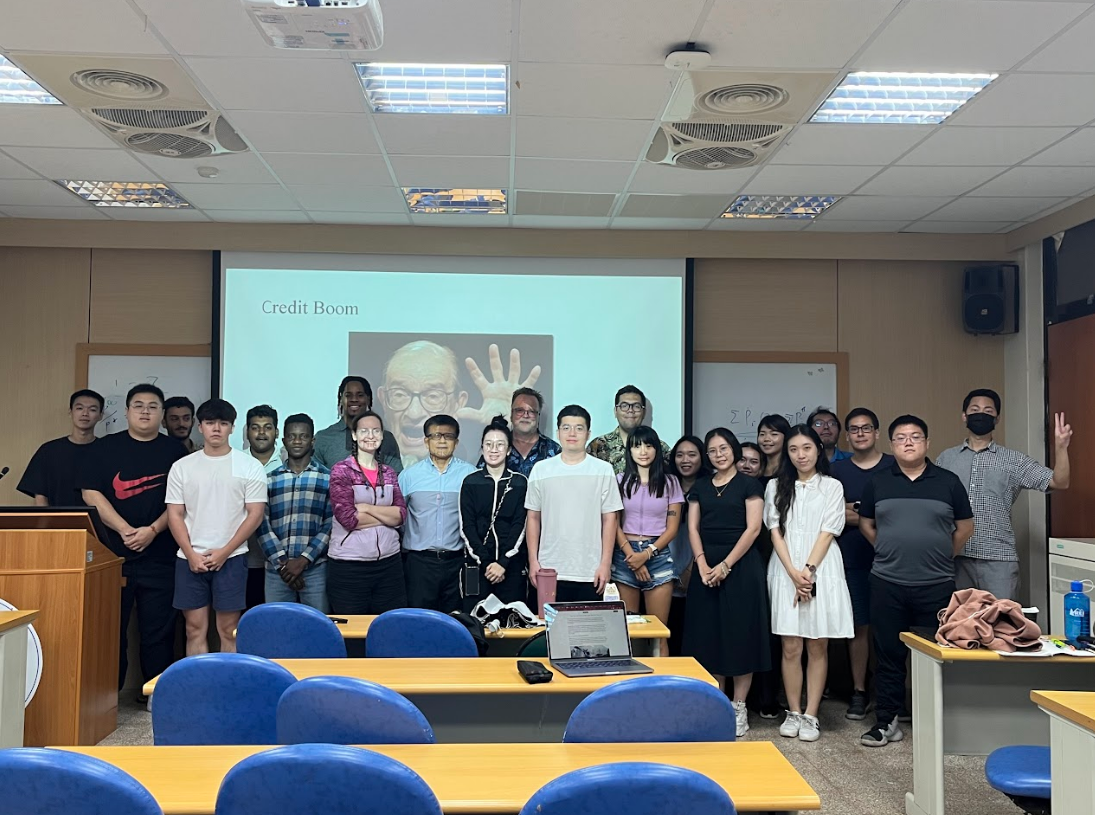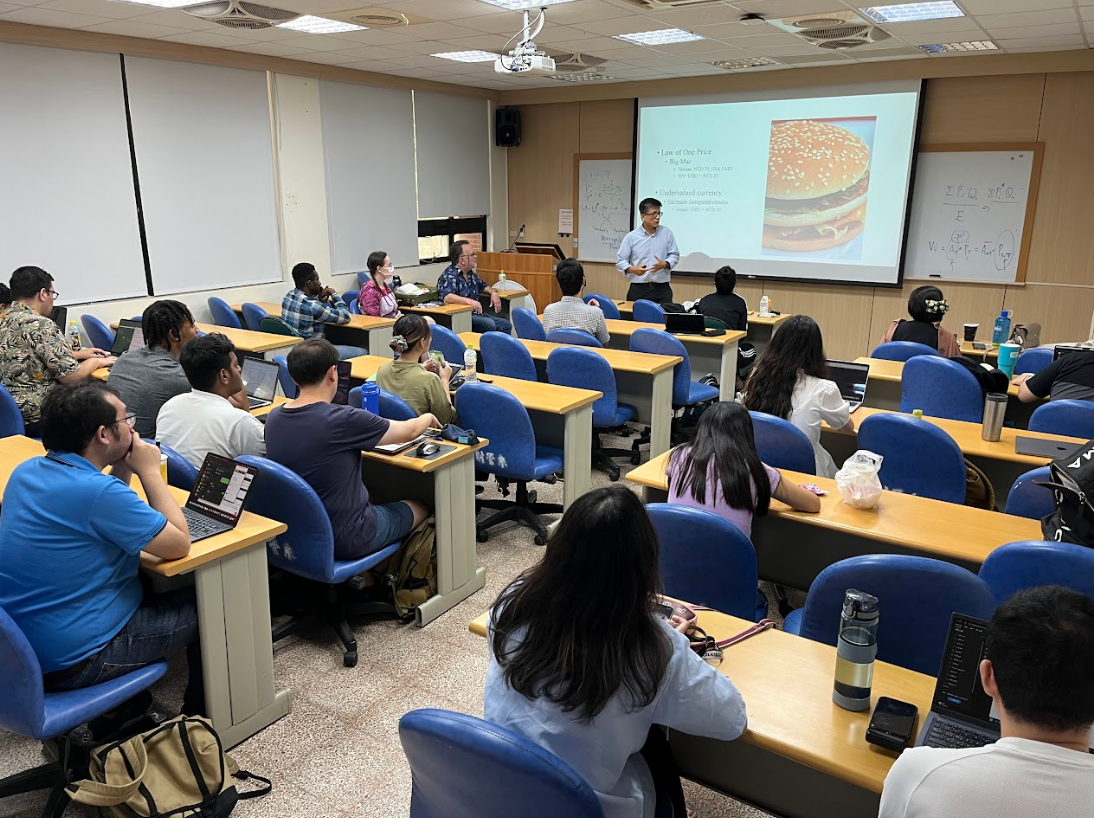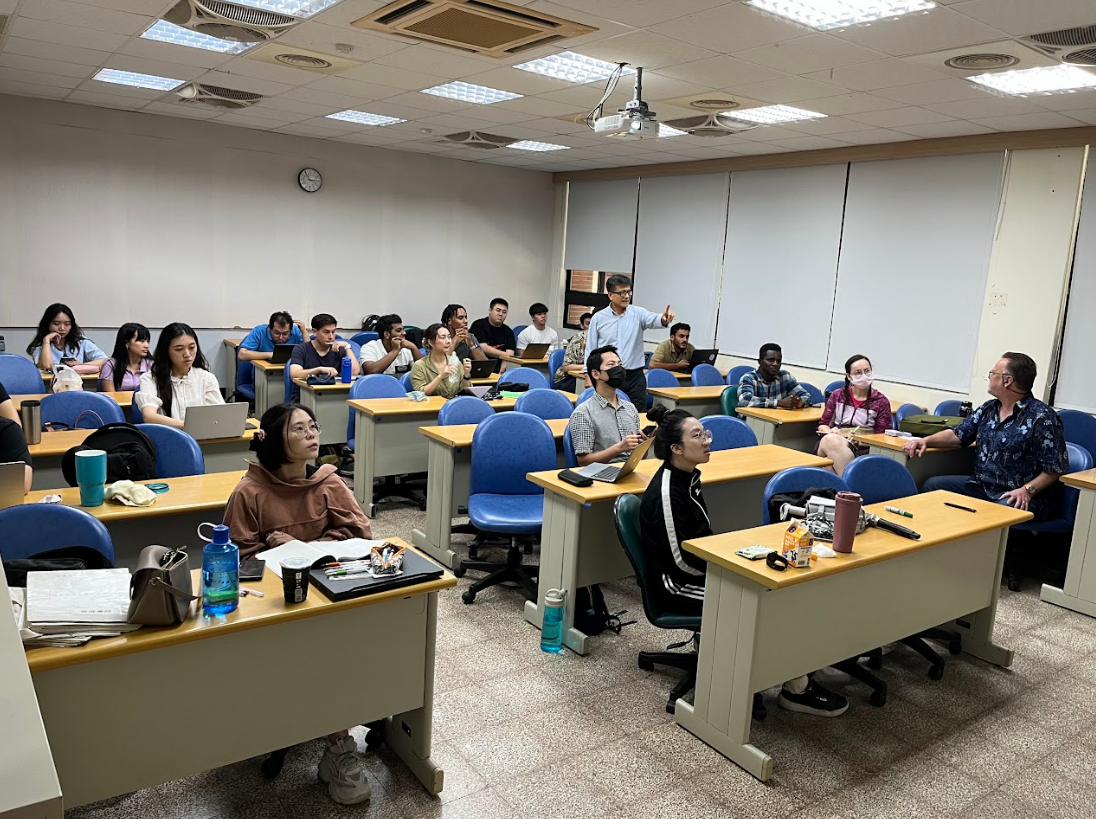《112-2_IB501》Exchange Rate Economics



On Wednesday afternoon, May 29th, the Managerial Economics class welcomed a speaker from the Department of Economics, at Feng Chia University - Professor Ho-Don Yan talked about the topic ‘Exchange Rate Economics’.
Professor Yan started with a brief introduction of his educational background and several ice-breaking questions. These questions not only help him get a grasp of the student’s preliminary knowledge of economics but also a way to get to know their backgrounds. Dr. Yan first mentioned PPP-adjusted, per capita GDP country comparison, and the currency exchange rate fluctuations in multiple Asian countries. He elaborated on these topics by introducing the Balassa-Samuelson Effect and …. These factual contexts helped students get in touch with a more insightful aspect of Purchasing Power Parity (PPP), which concentrated on the relationships between tradable and non-tradable goods. The Law of One Price (Big Mac) was emphasized as an example to underscore the characteristics of Exchange Rate Arrangements (IMF) and currency manipulation, leading to the subjects of global imbalance and financial crisis. In the second part of his speech, Professor Yan delved into financial globalization and Interest Rate Parity (IRP). He went into the policy dilemma from the perspective of IRP to explain the story of ‘Game of the Century’, where Soros attacked the HK Dollars. Then Turkey, and Argentina. The two quotes “Inflation is always and everywhere a monetary phenomenon.”- by M. Friedman and “Rapid inflation is almost always a fiscal phenomenon.”- by S. Fisher and W. Easterly were displayed to demonstrate the economic reform. During the Q&A session, Dr. Yan received questions about Exchange Rate Parity, in which he answered comprehensively.
In conclusion, Professor Yan's lecture provided a comprehensive overview of exchange rate economics. He covered a wide range of topics, including purchasing power parity (PPP), the Balassa-Samuelson effect, interest rate parity (IRP), and currency manipulation. By discussing real-world examples, such as the "Game of the Century" and economic crises in Argentina and Turkey, Professor Yan demonstrated the practical applications of exchange rate theory. Understanding exchange rates is essential for businesses and individuals alike, as they can impact everything from international trade to the cost of imported goods.
Written by Tung Nguyen Viet Do




